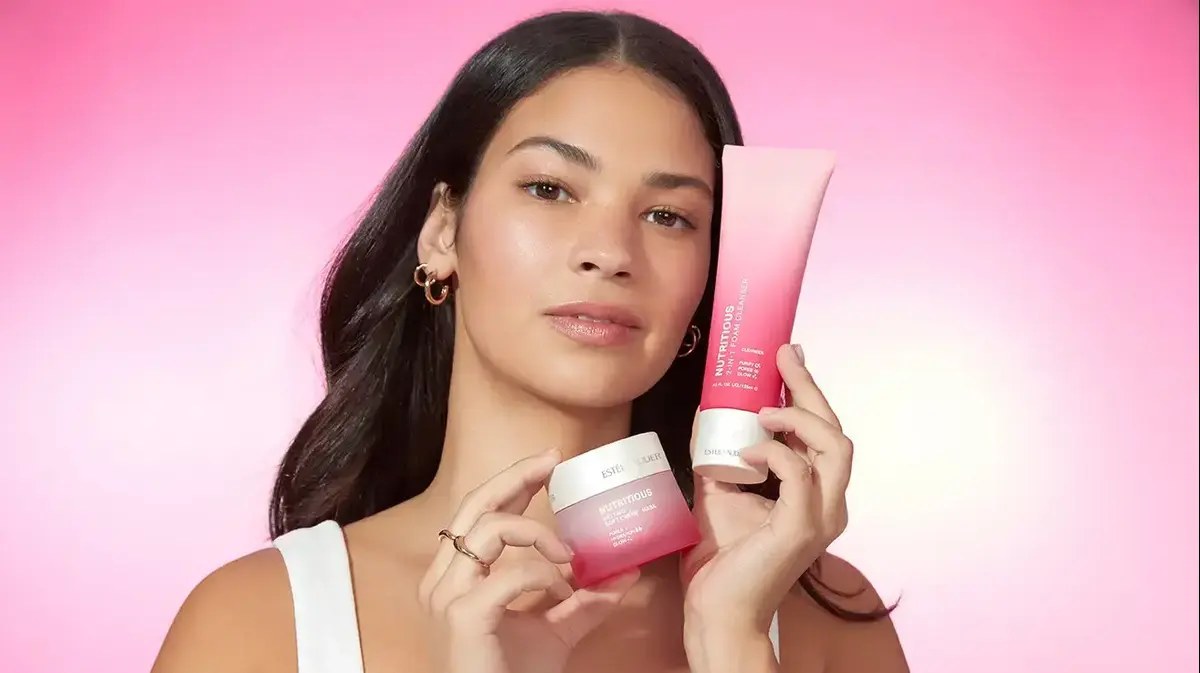Chava Zingboim (Photo: Public Relations)
Continuous stress and mental tension are an almost inseparable part of our lives.
Only within the home and among ourselves can we name a series of reasons that can lead to this, such as stress at work or alternatively dismissal and unemployment, stress and fights with the spouse, financial worries, concern for the children, divorce proceedings, situations of loss and bereavement, anxiety attacks, situations that overwhelm a lack of self-confidence , low self-esteem, etc.
And that's without even talking about what's happening outside the home such as the climate crisis, housing prices, traffic jams and other national and global problems.
A state of continuous stress disrupts the balance in the body and affects a variety of systems, including the appearance of our skin.
In other words: you can see on our faces how tense we are, and it looks just like it feels.
What happens to the body when we are stressed?
A state of stress - stress, mental tension - is interpreted by the body as an emergency and danger, which activates the hypothalamus, an area of the brain that is responsible for regulating various processes in the body.
In routine situations, the hypothalamus regulates the mechanisms of hunger and thirst, arousal and sleep, balances body temperature and sexual arousal states, is responsible for the production of the various hormones and the regulation of their activity, and more.
In emergency situations - it becomes a military commander.
The entire purpose of the hypothalamus in a situation defined as danger is to move the body into an emergency procedure. Among other things, this means sending neurological commands that raise the blood pressure and increase the heart rate, causing the body to produce a higher supply of energy, to increase the secretion of certain hormones (such as adrenaline and testosterone) over others and, in general, to concentrate all resources on essential processes and to abandon routine processes that do not affect the ability to survive immediately.
When stress appears for a short time, such as a one-time anxiety attack, the body knows how to deal with the extreme changes.
Once the stress subsides, the hypothalamus gradually returns to normal function and the "non-essential" systems are not harmed by the temporary neglect.
But during periods of prolonged mental stress, when processes - admittedly routine, but important - are delayed, there is a cumulative effect of deficiencies on the one hand and excess activities on the other, and the body's ability to devote resources to rehabilitation and self-healing is impaired.
This may cause a hormonal imbalance and, as a result, an increase in sugar levels and blood pressure, as well as disruption of the activity of the immune system, and as a result, the development of autoimmune diseases.
You may start to suffer from headaches, stomachaches, chest pains, nausea, shortness of breath, muscle pains and more.
In severe cases, the condition may lead to the development of severe migraines, stomach ulcers, digestive problems, diabetes, severe sleep disorders, fibromyalgia, fertility problems, cancer and more.
Chava Zingboim (Photo: Public Relations)
Chava Zingboim (Photo: Public Relations)
The effect of stress on the skin
The melanocyte cells, which are part of the skin's immune system, are also affected by the hormonal imbalance caused by continuous stress.
The way they react to the situation, as with any deviation from the norm, is the excessive secretion of the color pigment in the skin - melanin - which leads to the appearance of pigmentation spots.
The damage to the function of the immune system of the skin may also lead to extreme inflammatory reactions, and worsen existing diseases such as psoriasis, seborrhea, urticaria, asthma of the skin (atopic dermatitis) and more.
In addition, the excess testosterone secreted in stressful situations may cause overactivity of the mammary gland, resulting in acne breakouts.
And if you were wondering why people after a severe crisis sometimes look as if old age has overtaken them, it is because this is indeed what happens: inflammations, diseases and digestive problems (and also the drugs we take to treat them), increase the amount of free radicals in the body, which cause damage to cells, harm -DNA and accelerate the aging processes of the skin.
This condition, in which body and skin cells are damaged and even die due to the abundance of free radicals, is called oxidative stress.
How do you protect the skin from the consequences of stress?
The amount of stress factors in the modern world is so great that there is no way to create a calm, peaceful and completely stress-free bubble for ourselves.
But even though we cannot completely eliminate the stress factors, their effect on our body and facial skin can certainly be moderated.
First, even if it is impossible to avoid stress, it does not mean that you have to put up with its intensities.
Any way that will allow you to find some calmness and mental balance can alleviate, even if only slightly, the feelings of stress and tension and have a positive effect on the condition of your body and skin.
It is recommended to incorporate into your daily routine any supportive, relaxing and pleasant activity such as mind-body treatments, conversations with professionals, sports activities, walking in nature, listening to relaxing music and making sure you have a loving and supportive environment.
At the same time, one must fight the oxidative stress and neutralize the damage of the free radicals.
To this end, it is important to provide the body with antioxidants (antioxidants) that strengthen the immune system and provide protection to the cells, and this can be done both by following a healthy diet and by using cosmetic preparations containing powerful antioxidants.
Since the causes of all skin concerns are found deep in the skin, it is important to use products that allow the introduction of antioxidants and other active ingredients deep into the skin.
The treatment products from Chava Zingboim are based on the two-depth method and unique miniaturization technologies that allow, on the one hand, the introduction of dedicated active ingredients into the deepest layers of the skin, and on the other hand, treatment of the outer protective layer of the skin.
The effectiveness of the preparations, which provide an answer to all the needs of the skin, has been scientifically tested, and it has been proven that they contribute to the restoration of the skin tissue and its flexibility, to the strengthening of the natural moisture factors in the skin and to the creation of a powerful protective shell, antioxidant, anti-inflammatory, antibacterial and probiotic.
For more details and purchase of anti-aging skin care products >>
In collaboration with Chava Zingboim
havazingboimworld
IMAGINE
Tags
Cultivation












